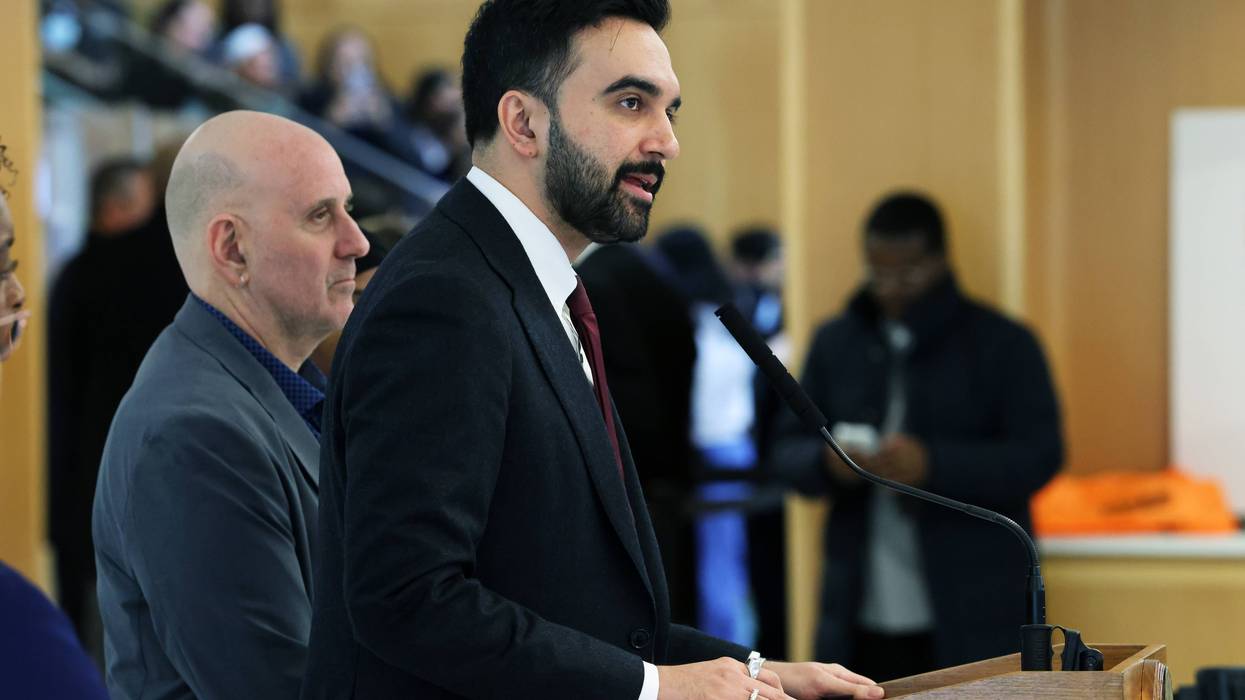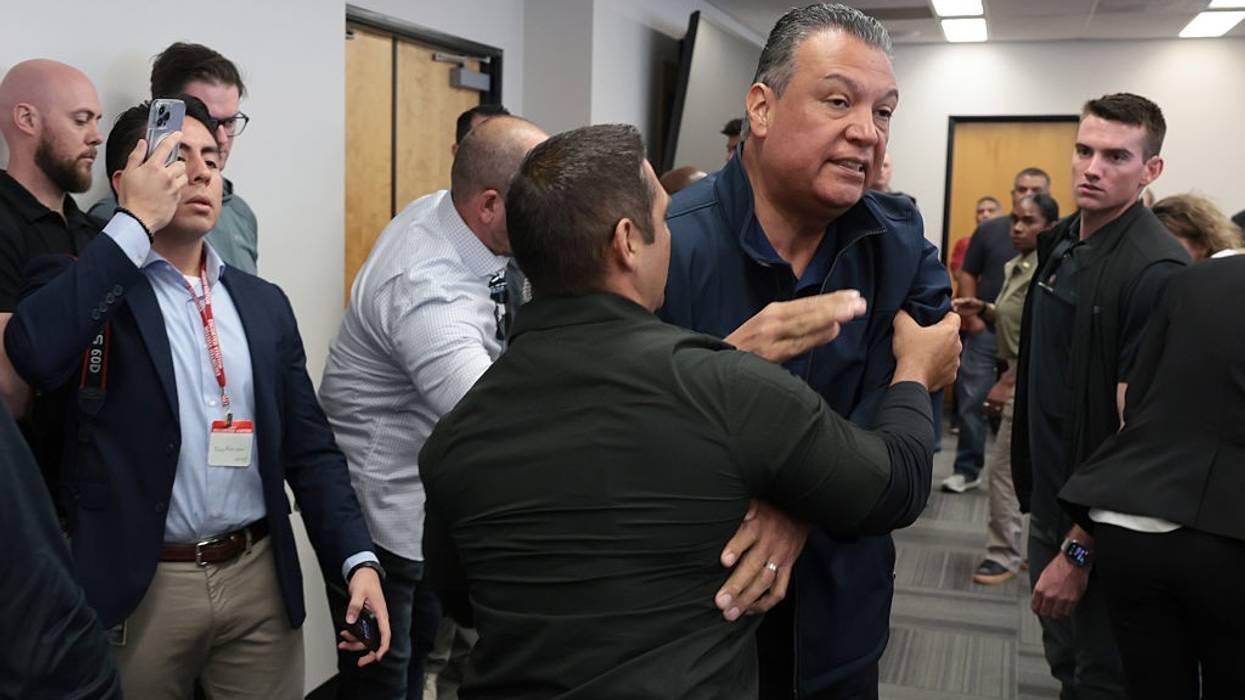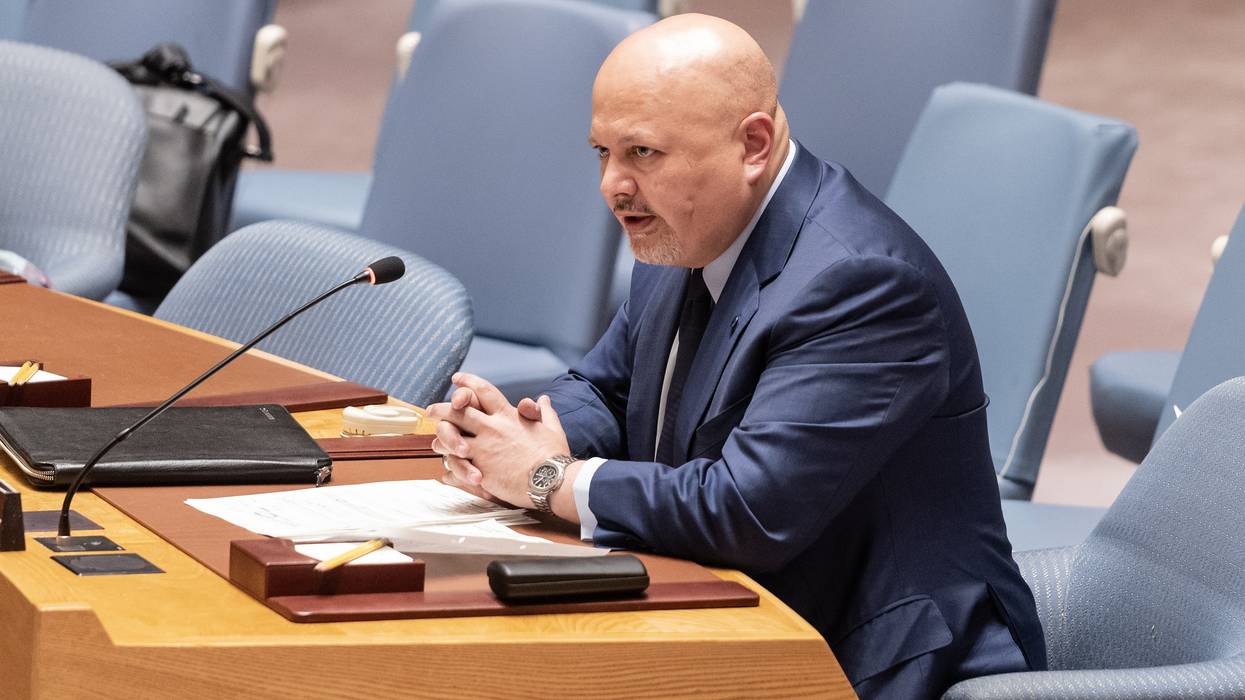Mamdani Signs Executive Order Requiring ICE Agents to Get Judicial Warrants in NYC
"ICE is more than a rogue agency—it is a manifestation of the abuse of power," the mayor said.
As the Trump administration claims federal agents have the authority to raid Americans' homes and carry out arrests without a warrant, New York City Mayor Zohran Mamdani signed an executive order on Friday barring Immigration and Customs Enforcement and other agencies from entering properties without getting a warrant from a judge.
It was part of a suite of policies Mamdani announced at an interfaith breakfast to reaffirm New York's status as a sanctuary city amid President Donald Trump's surges of immigration agents to other US cities, which have resulted in extrajudicial killings and rampant civil rights violations by agents.
"Across this country, day after day, we bear witness to cruelty that staggers the conscience. Masked agents, paid by our own tax dollars, violate the Constitution and visit terror upon our neighbors," Mamdani said. "That is why this morning, I am signing an executive order that will strengthen our city's protection of our fellow New Yorkers from abusive immigration enforcement."
As part of what the mayor called "a sweeping reaffirmation of our commitment to our immigrant neighbors," federal agents will not be allowed to enter city property—including parking garages, parking lots, schools, shelters, hospitals, and other public spaces—without a judicial warrant.
The order comes after the publication last week of a leaked memo from the Department of Homeland Security (DHS) telling agents they had the authority to indiscriminately round up people suspected of being undocumented immigrants without obtaining a warrant from a judge, instead using "administrative warrants" signed by agents themselves.
A previous memo issued in May to all ICE personnel by acting ICE Director Todd Lyons asserted that agents had the authority to forcibly enter private residences without a judicial warrant, a claim that legal experts roundly condemned as a violation of the Fourth Amendment's protection against unreasonable searches and seizures.
In Minneapolis, where more than 2,000 agents have been deployed as part of President Donald Trump's "Operation Metro Surge," reports abound of agents harassing, detaining, and brutalizing mostly nonwhite residents, many of them US citizens, often using explicit racial profiling.
Mamdani emphasized that "this cruelty is no faraway concept."
"ICE operates here in New York. In our courthouses. Our workplaces. They skulk at 26 Federal Plaza—the same building where I waited in fear as my father had his citizenship interview," he said. "ICE is more than a rogue agency—it is a manifestation of the abuse of power. And it is also new. It was founded only in 2002. Four mayors ago, it did not exist. Its wrongs need not be treated as inevitable or inherited. In fact, there is no reforming something so rotten and base."
During the speech, Mamdani asked faith leaders to pass out tens of thousands of "Know Your Rights" flyers and booklets written in 10 different languages, informing readers of their right to remain silent, to ask for a judicial warrant, to speak with an attorney, and to request an interpreter.
"I urge you to share these with your congregants—even those who are citizens, even those whom you think ICE may not target," he said. "These materials apply to us all: those who have been here for five generations, those who arrived last year. They apply to us all because the obligation is upon us all. To love thy neighbor, to look out for the stranger."
In addition to the warrant requirement, Mamdani's order requires city agencies to develop training for employees on how to interact with immigration authorities when they show up.
It also states that data collected by city agencies must not be shared with federal immigration officials, as the Trump administration has sought to weaponize data from programs like Medicaid and Social Security to target people.
It requires city agencies to complete an audit within the next two weeks to demonstrate compliance with the city's sanctuary policies.
Murad Awawdeh, the president and CEO of the New York Immigration Coalition, applauded the mayor "for taking decisive action to fight for our immigrant neighbors."
"New York is a city built and maintained by immigrants—from its culture to its skyscrapers—and today's executive order will bring us closer to a city where every New Yorker can live in safety and dignity," he said. "Mayor Mamdani's announcement recognizes his responsibility to defend all residents from abusive immigration enforcement, and our moral obligation to protect our immigrant neighbors from these attacks."


